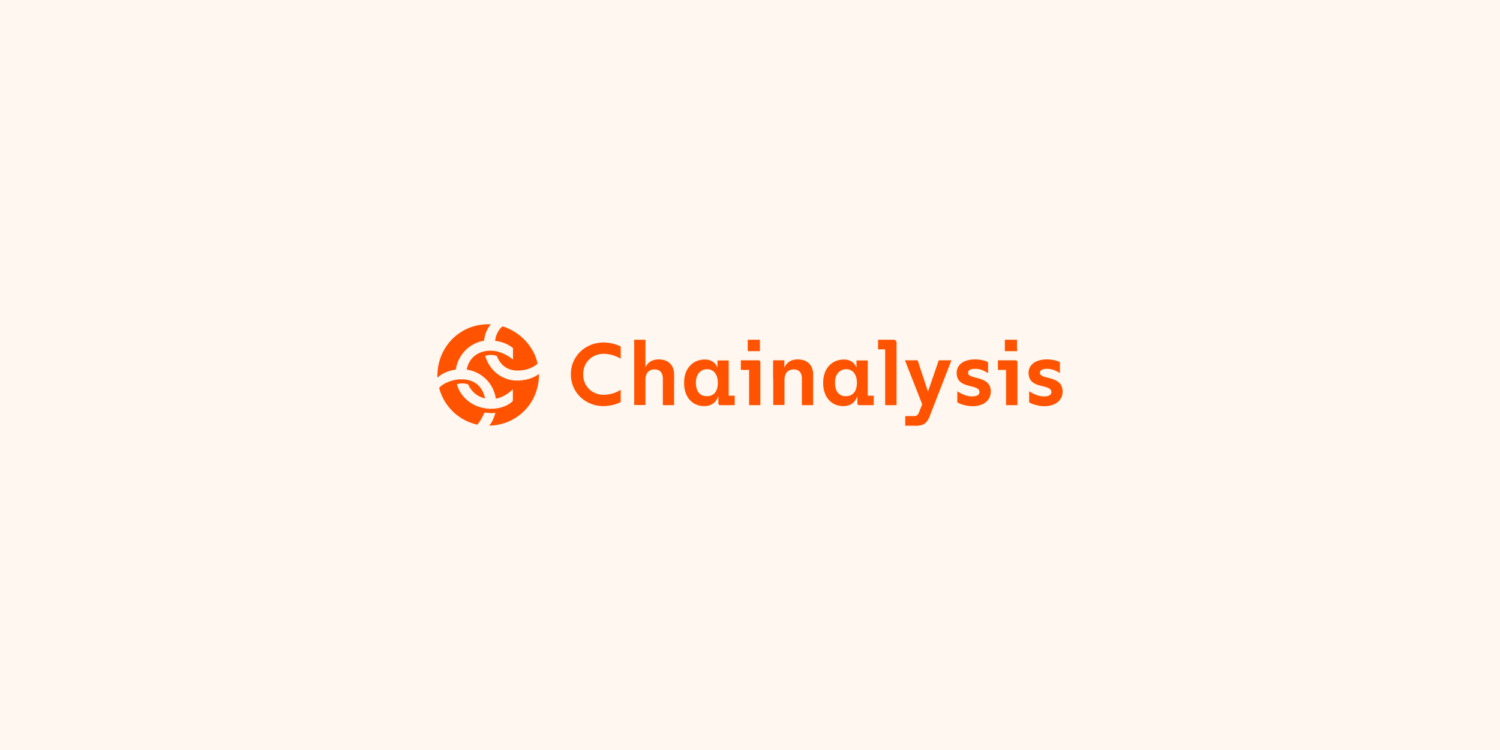May was Asian Pacific American Heritage Month (APAHM) across the United States!
The term “Asian Pacific American” broadly encompasses all of the Asian countries and Pacific Islands, Micronesia, and Polynesia. Since 1992, the month of May has been an annual observance to celebrate the achievements, cultures, and rich history that these communities bring and honor the stark challenges they still face in America today.
At Chainalysis, we took time to celebrate our APAHM community throughout the month of May and hear how their identity shows up every day in the business world. Through employee spotlights, internal spotlights on Asian and Pacific American representation in media, food, and sports, and bringing in caterers from Asian-owned restaurants into our offices, we took the time to honor APAHM.
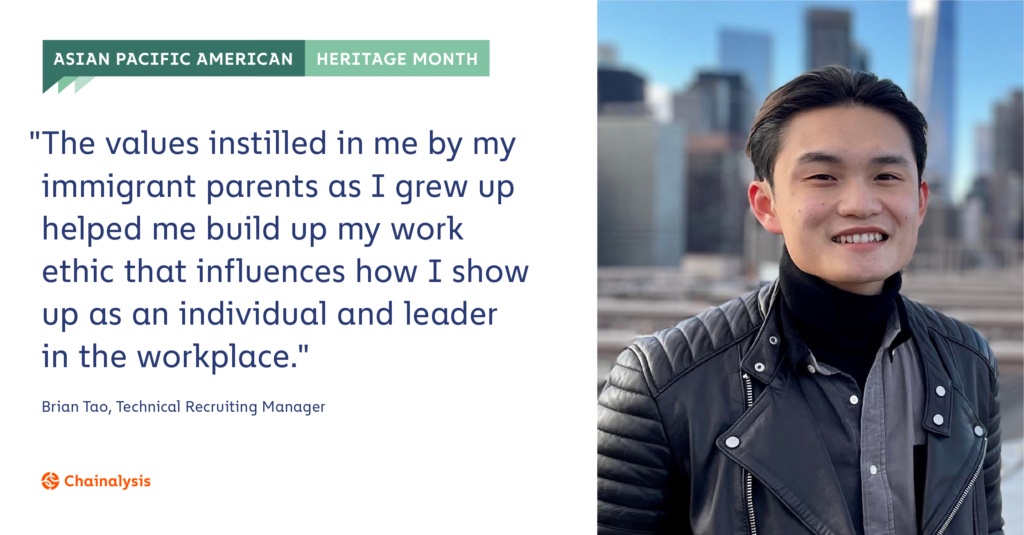
Brian Tao, Technical Recruiting Manager
The month culminated in a panel of our Asian and Pacific American leaders speaking to their career development, personal experiences, and influences that have shaped them. We’re excited to share the takeaways from that panel here and keep them with us well beyond the month of May.
Read on for insights, takeaways, and inspiration from some of the incredible Asian and Pacific American leaders at Chainalysis!
Meet our panelists
Pratima Arora, Chief Product Officer
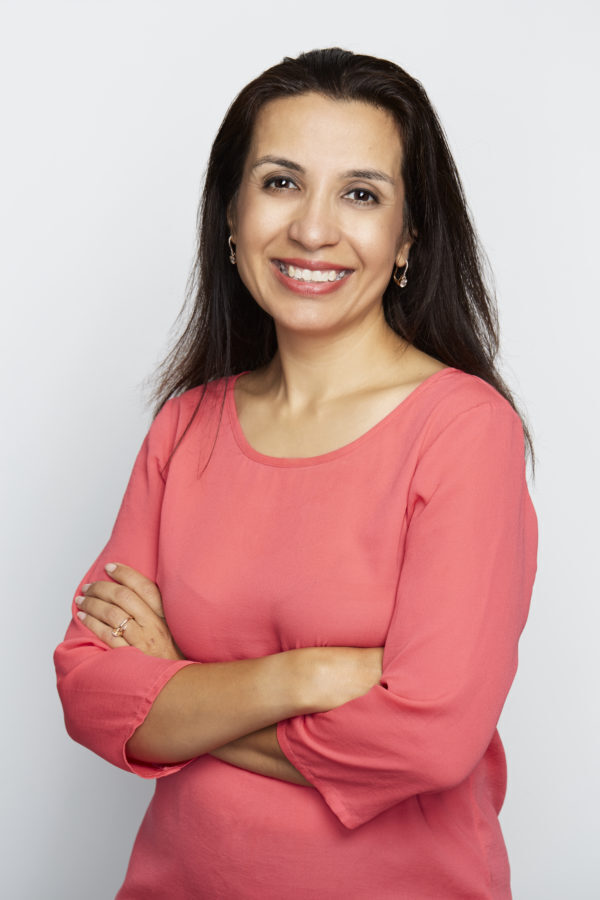
Pratima is a revenue-generating, product-strategy, tech-loving mastermind who is delivering Chainalysis’ blockchain data platform to customers globally. A self-proclaimed geek, she loves to solve the toughest customer problems with simple and intuitive solutions. Pratima has worked with Salesforce and Atlassian and sits on the board of DigitalOcean.
Rakib Azad, Senior Vice President of Finance
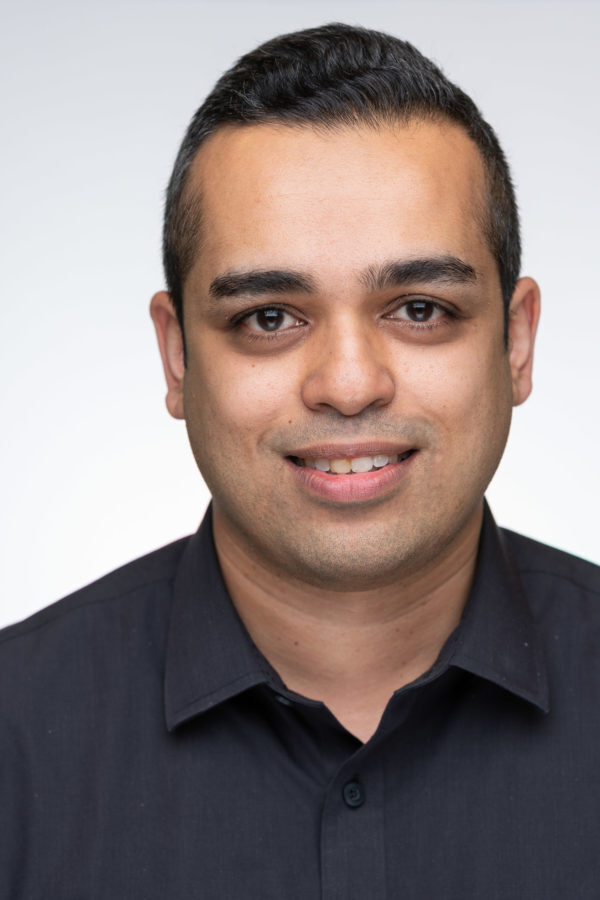
Rakib joined Chainalysis to lead the Finance team after 15+ years of experience at Consumer Products, Retail, and Software companies ranging from high-growth startups to Fortune 1000 companies, with his prior role coming at MongoDB. He first started looking into Bitcoin back in 2013 and looks forward to helping Chainalysis’ mission to bring more trust and transparency to the blockchain ecosystem.
Chris Adorna, Director of Corporate Systems and Data Engineering
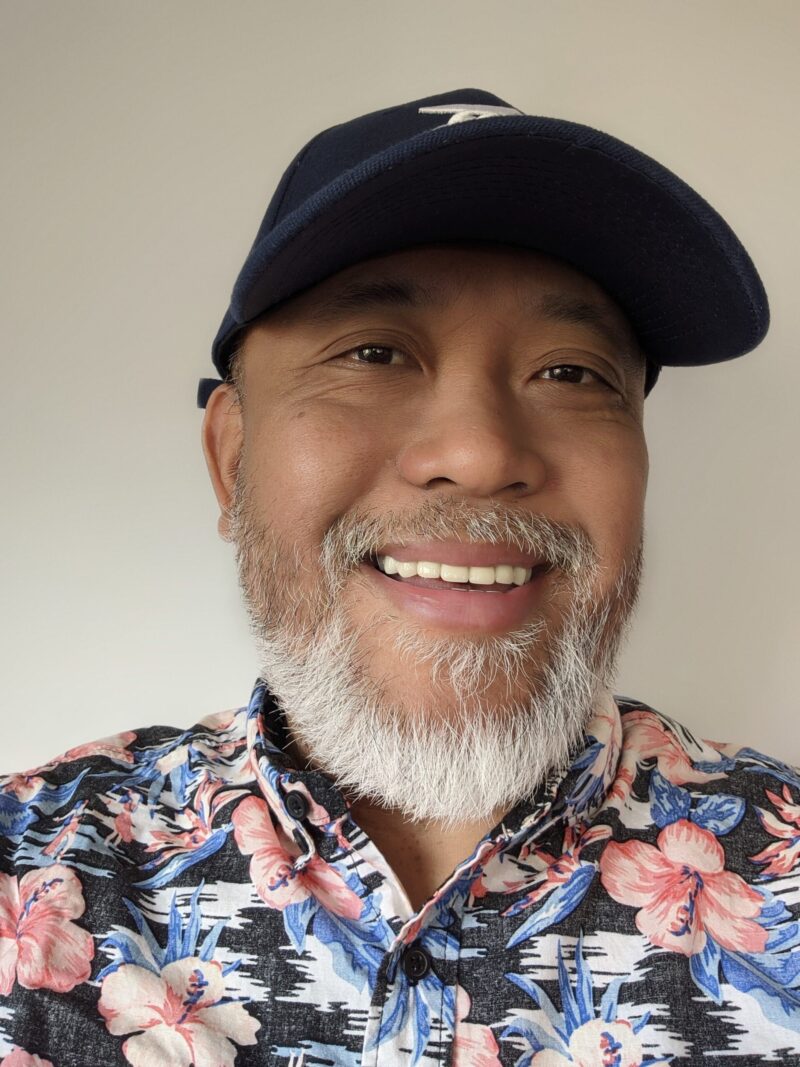
Chris leads the corporate data engineering and systems functions in empowering Chainalysis teams to do their best work and accelerate growth. A systems thinker and platform builder, he has held leadership roles at digital agencies and tech startups like RAPP Omnicom and Slack for over 20 years.
Moderated by Jessica Pearce, Office Coordinator
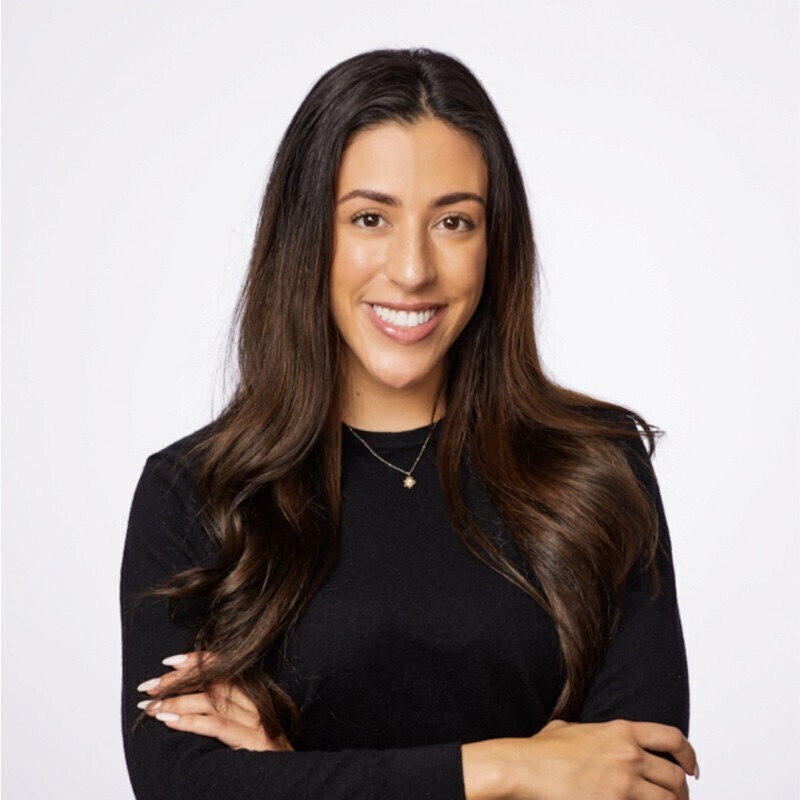
Since graduating from Colgate University in 2018, Jessica has managed offices at tech companies in both LA and New York. She joined Chainalysis in December of 2021 to open the new New York City office. She is passionate about advancing equity and diversity initiatives at Chainalysis, and fostering an office space that is welcoming, inclusive and fun.
Panel reflections and key takeaways
We asked our panelists questions about career development, work/life balance, leadership perspective, and personal experience. Read on to hear their advice on navigating these topics as leaders and members of the Asian Pacific American community.
Q: Oftentimes, you hear the term “glass ceiling” or, in our cases, a “bamboo ceiling”. How have you navigated through shattering the “bamboo ceiling” to grow your career to where you are today? What advice do you have for those who may feel stuck?
Rakib:
A: “If you grew up in an Asian household, you were probably taught that respecting your elders is the most important value there is. Many of us strongly believe and align to that idea, and want to pass it on to our children. However, it can be tricky to navigate in the American business world. I’ve wrestled with it in my career. My default mentality is to defer to my elders, and earlier in my career that may have hurt me. But as I have developed in my career, I have learned to fight this instinct.
What’s important to remember is that you have a unique and special skill set that no one else has, regardless of their age. You need to bring your voice to work and speak up because if you don’t, you’ll limit yourself.”
Pratima:
A: “For a long time, I didn’t realize there was a ceiling. I thought this was just how it was, that I had to try harder. I thought you always had to prove yourself, every time you hit a new ceiling, before you got a seat at the table. It was very late in my career that I realized it’s different for others who don’t have to try as hard, to shatter their own assumptions.
The first thing you can do is be aware of the ceiling and be intentionally working towards breaking it. If you want a career change, you have to be the driver. You can’t rely on anyone to just give it to you, it’s your job. If you do take the driver’s seat, I’m happy to tell you that it can happen!”
Q: What is one skill that you’re proud of as a professional, and how has it made you successful?
Chris:
A: “I had to learn early on that you always need organized thoughts and an organized approach. In every situation, know that you need to have the discipline to show up prepared and think through contingencies and be able to speak to them. It takes practice to build this muscle and it can atrophy if you stop using it.”
Q: In each of your own individual styles, how do you think about and how have you built inclusive and diverse teams?
Pratima:
A: “It has to be intentional. If you don’t do it intentionally, it doesn’t happen. I take a three-prong approach: it has to start with the hiring pipeline at the top, then growing and retaining talent through inclusive activities throughout the work week, month, and year.
In terms of developing diverse talent, I try to be very aware of how everyone on my team operates and help them be successful in their own ways. I think of diversity as not just of race and gender, but of cognitive diversity which is proven to be what creates high functioning teams.
People underestimate how long it takes to make a highly diverse team, highly functional. It’s important to be aware of that and to think about inclusivity at all times in meetings, in conversations, and changing your ways of working to be inclusive.”
Rakib:
A: “Intentionality is key. In Finance organizations, for example, you see less women in the field so it’s important to make interviewing for gender equity a priority with your recruiting partners. From my experience building diverse teams, I know that the science is right and having diverse teams works. It’s important for all leaders to prioritize building inclusive and diverse teams and put in the effort.”
Q: Is there an Asian/ Pacific Islander leader or influential figure that you look up to? How have they impacted you personally or professionally?
Chris:
A: “I’ll start with some quick context. I was born and raised in Africa to Filipino parents, before we moved to America when I was 12. That meant that I never grew up in a place where everyone looked like me. My MO was always to fit in and not stand out for being a minority.
Around this time, I became aware of Lance Ito, who was a judge in the Los Angeles criminal court. One of the cases he presided over was the OJ Simpson case. The highly anticipated and publicized nature of that case required him to make a lot of difficult choices that people had opinions on. But he made those choices with the highest professionalism and that won a lot of respect.
Lance Ito was also a third generation Japanese American and was deeply rooted in his culture, like I was. At the time, when I did not want to stick out because of my identity, I saw Judge Ito being deeply rooted to his culture but being known for his professionalism and what he brought to the table. That really resonated with me.”
Q: There appears to be an exponential rise in hate crimes, particularly toward Asians, since the pandemic. What does showing up to support the Asian Pacific community look like for you?
Chris:
A: “For me, it means not changing what I’m doing. I’m not going to stop living my life because of these incidents, and I’m going to support the local businesses in my community that have been affected. I’m going to spend time at those places even more because of the hate.”
Q: Is there a piece of advice you heard in your career that you still keep top of mind today?
Pratima:
A: “My biggest career advice is to challenge your own assumptions. Ask why you think the way you do and if you need to disrupt yourself.
Early in my career, I wanted a promotion and was talking to another manager at my level. I explained all the steps I would take and things I would do to get there so in four years, I would be ready to apply for the promotion. The manager looked at me and asked, ‘why?’ I realized that I didn’t have an answer other than “that’s how it’s supposed to be.” I had assumptions that I had made up for myself on what I needed to do to be ready for the promotion, but it was stopping me from moving forward. It was a conversation that really stuck with me.”
Rakib:
A: “My advice is that there is never only one way to solve a problem. Sure, there are tried and tested ways, but I try to think creatively and against convention to get the best result. That has worked well for me in my career and I carry this mentality with me all the time.”
Chris:
A: “As a team leader, your job is to serve the team and foster their development. It’s important to always listen to the team and their viewpoints and bring them along on the journey, not just force them to follow your vision. That’s what strong leadership looks like.”
Thank you to our panelists and to everyone at Chainalysis who helped make Asian Pacific American Heritage Month impactful. We’re looking forward to continuing the conversations year-round!
Interested in learning more about working at Chainalysis? Visit chainalysis.com/careers to view our open roles and get a glimpse into our culture.
